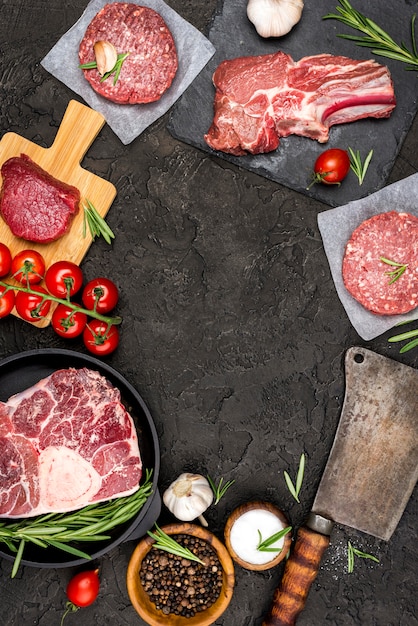Meat Is Carcinogenic
There is a strong, well-documented relationship between eating animal products and various types of cancer. A comprehensive nutritional study involving over half a million people found that those who consume large amounts of meat, especially red and processed meat, have a significantly higher risk of cancer.
According to the World Health Organization (WHO), processed meat is classified as a carcinogen, and red meat is “probably carcinogenic.” This isn’t fringe science or a new theory; even the American Cancer Society advises limiting the intake of red and processed meat, as well as other high-fat protein sources like chicken.
The cancer risk from a diet high in animal protein (more than 20% of total calories) is now considered comparable to the risk from smoking. In contrast, a diet high in plant protein does not show the same effect. This difference may be because plant-based proteins do not stimulate growth hormones like IGF-1 (insulin-like growth factor), which animal proteins do.
IGF-1 in Meat Assists Tumor Growth
IGF-1 is a growth factor that promotes cell division, which is beneficial for growing children. However, in adults, excess IGF-1 can encourage tumor growth. Higher levels of this hormone increase the risk of developing several types of cancer. IGF-1 helps transform normal cells into cancerous ones by inhibiting normal cell death and stimulating cell division, allowing these corrupted cells to spread to other parts of the body.
Other factors also promote cancer in the body. Methionine, an amino acid found mainly in animal products, supports tumor and cancer growth. It’s not just animal protein that raises cancer risk.
Saturated Fat Increases Cancer Risk
Consuming saturated fat from animal sources contributes to common types of cancer and decreases the likelihood of surviving a cancer diagnosis. Pancreatic, prostate, breast, and colorectal cancers show the strongest correlation with saturated fat consumption.
The saturated fat in dairy and red meat increases the risk of pancreatic cancer. A diet high in saturated fat from foods like beef and cheese is linked to aggressive prostate cancer. Breast cancer risk and mortality increase with red meat and dairy consumption, and survival rates drop significantly with high saturated fat intake after a breast cancer diagnosis. Alarmingly, consuming animal products during adolescence seems to predict breast cancer risk years before cancer development and diagnosis.
Up to 50% of all colorectal cancer cases can be attributed to diet and lifestyle, specifically the consumption of dietary fat, red and processed meat, and dairy. Higher consumption of animal products before diagnosis predicts a higher risk of dying from this type of cancer.
Meat and Pediatric Cancer
What a mother eats during pregnancy can influence the risk of her child developing certain types of childhood cancer. Genetic changes linked to cancer can begin in the womb.
Acute lymphoblastic leukemia (ALL) is the second most common childhood cancer and the second leading cause of mortality for children under 14. The risk of developing ALL is linked to maternal smoking habits and the type of protein the mother consumed during pregnancy. Eating plant-based proteins such as beans, vegetables, and fruit during pregnancy seems to lower the risk of children developing this disease.
Brain tumors, which account for 20% of childhood cancer cases, are linked to maternal diet during pregnancy. Consuming cured meat and sausage significantly increases the risk of brain tumors. Eating dairy or eggs while pregnant also raises the risk of the child developing brain tumors. Conversely, a diet high in grains, fresh fish, and cruciferous and yellow-orange vegetables reduces the risk of brain tumors.
Lifestyle Is Key to Prevention
Many complex and interconnected factors such as genetics, environment, exposure to hazardous materials, and diet determine your cancer risk. Genetics play a significant role, but unfortunately, we can’t change the genes we’re born with. Nutrition, however, is something most of us can control. The best way to reduce your cancer risk is to follow a raw, organic, vegan diet.
If going completely vegan isn’t feasible, try to reduce your consumption of meat and dairy. Start with small steps, like going meatless one day a week. After a month of “Meatless Mondays,” add a “Fruitarian Friday” or “Salad Sunday.” Continue this pattern until you feel comfortable with a primarily plant-based diet. We offer many healthy and delicious vegan recipes, including complete dishes, sides, and desserts.
Going vegan won’t guarantee you’ll never develop cancer, but it is a strategy that can help reduce your risk.

